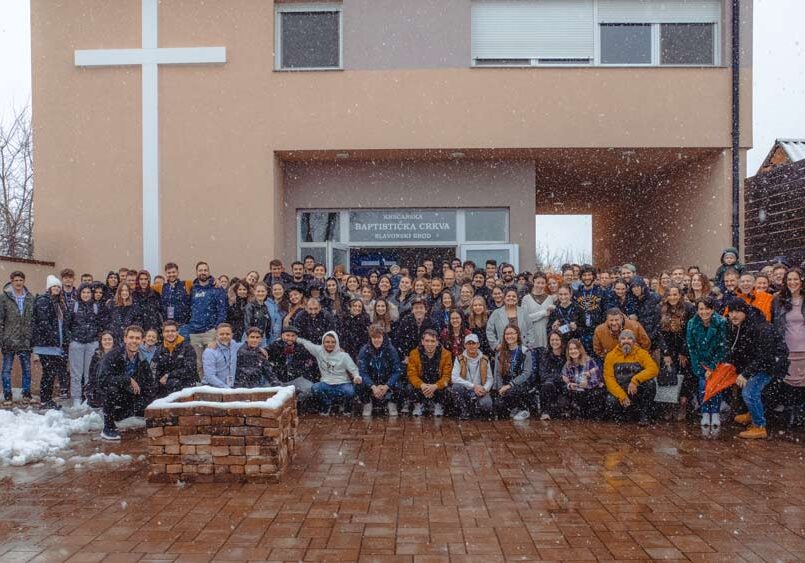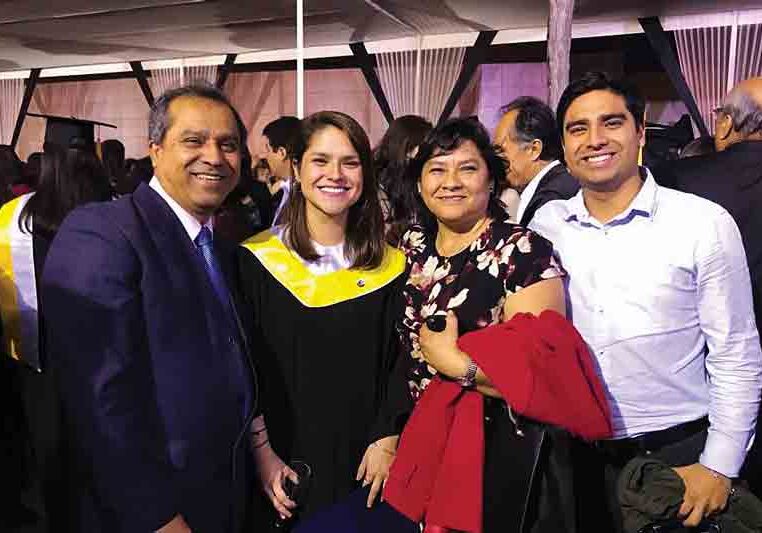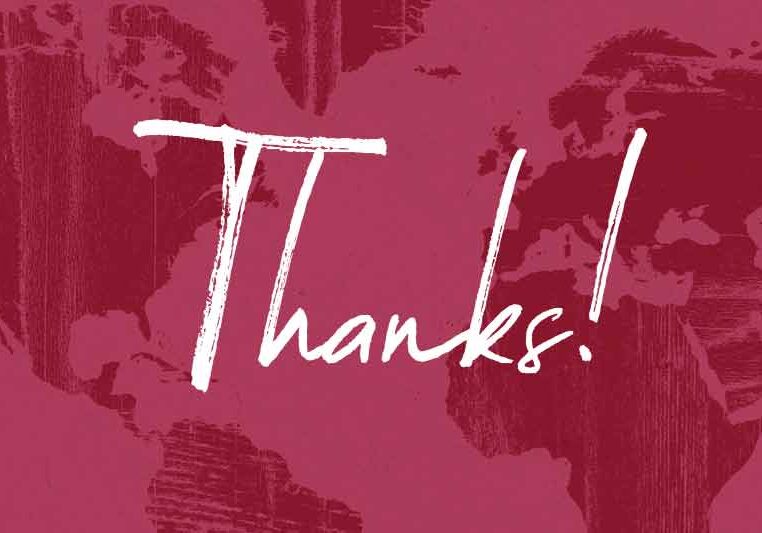asx
Steffen Weil and his wife, Renata, have been Fellowship Global partners since 2009. During that time, he has planted churches, welcomed refugees, and started a coffee-shop ministry in Potsdam. Since moving to Hamburg, he has taken on new roles as a pastor for outreach, church-planting leader, and ministry leader/trainer. In this interview, he catches us up on his new roles and the ways God is moving in Germany.
FBC: Steffen, thanks for speaking with us today. Let me start by asking about you personally. What was it that led you to your current role of training and mentoring church planters?
Steffen: It’s interesting. I mean, my wife, Nata, and I were church planters for 13 years in Potsdam, and we started three or four daughter churches from there. I always had several interns, and I always felt like people wanted to learn, and I guess after 10–12 years, I have some experience to share. There is a calling in my heart to equip people. My wife is constantly reminding me that my spiritual heroes, such as Timothy Keller (who has cancer), John Piper, D.A. Carson, and my seminary professors—these guys are all getting older. She tells me, “You guys are the next ones, you and your buddies… and we need to invest in young leaders.” She’s right. I turned 50 in July and, in 2020, went through a personal crisis that resulted in a season of deep depression. But God really used that time to renew my calling. I am now more focused on multiplication, which means we want to equip as many leaders as possible.
Since moving to Hamburg in the summer of 2021, besides being a missions pastor at a local church, I became a city-to-city gospel coach as well as the city trainer for new church planters in this area. And now I’m part of the European trainer team, also. Much of my time is spent dreaming of how we can help leaders develop into trainers. As a city leader, I want to see a collaborative city network.
FBC: What are some of the difficulties of church planting in Germany and in Europe as a whole?
Steffen: I would say we have to count Germany and Europe as a mission field. Missiologists talk about Germany as a dark and dry place spiritually. Worldwide a lot of people are becoming Christians, but not here in Europe. I don’t want to focus on the hard soil and all that because the gospel has the power to renew everything. But Germany truly is post-Christian… it’s postmodern, it’s individualistic. It’s wealthy. Most people don’t have a living faith, and they don’t miss it at all. They have their security systems, their wealth, their insurance, and a good life. They see no need for something more.
Most of the churches in Germany are still using an old model which says, “Okay, we are here… let people come to us.” Well, people are not coming. Here in Germany, you can start a church, sure, but people won’t attend just because the church doors are open. So, there must be a change of mindset among pastors and church leaders.
The churches we planted in Potsdam were disciple-making churches. That was my focus. When we discipled interns, as well as new believers, our desire was to make disciples who were intent on making disciples. Most of our interns are still in ministry, and many of them became church planters. I consider this my calling, to disciple leaders who make disciples.
asx
FBC: Is there anything unique about disciple-making in the German Evangelical context?
Steffen: I would say the biggest challenge is leading believers back to Scripture. Most Christians are trusting more in Netflix than in the Scriptures. It’s easy to say, “I believe in Jesus, and I have faith in God,” sure, but many believers don’t sense the need to attend church and don’t spend time reading God’s Word. To me, that was the main thing in former East Germany, in Potsdam: helping people understand the importance of Scripture. A girl once said to me, “Steffen, you’re always talking with such a high view of the Scriptures. But for me, opening the Bible feels like googling without knowing what I’m searching for.”
This Biblical illiteracy may be more of a problem in Germany than in the US. I’m not sure. Most of the American teams that come here are bringing their Bibles and reading them. So discipling people here in Germany requires preaching God’s Word and trying to help people understand how trustworthy it is.
FBC: Tell us about your friend Rudi and his new church plant in Hamburg.
Steffen: Yes, this is exciting. Rudi is a black guy, German-born and raised in Hamburg, but with family roots in Ghana, Africa. He’s married to a German white girl from Hamburg, and they have three daughters. Rudi was in the business world but is now a church-planter. He and his team will be launching a German-speaking transcultural church, oriented mainly at immigrants in this city. We’re praying this succeeds, as there are immigrants from over one hundred different nations living in Hamburg. The church launched September 4, and it is called “VIA,” the Latin word for “way.”
FBC: Regarding Rudi’s target audience, how has this affected the way you mentor him in his church-planting role?
Steffen:I always ask myself, “Am I mentoring him, or am I coaching him”? I wouldn’t say I would be a good mentor because that would require that I have the information that is required. For instance, I’ve never pastored an immigrant church. But coaching him is how I would define our meetings. We meet once a month for two hours, and I just ask him questions. I’ll listen to his ideas and then say, “What does that mean for your contacts, for your strategy, for your family?” In this way, I’m helping him process what’s going on in his world, rather than trying to pump him full of my ideas or my information. I don’t want him leaving our meetings and thinking to himself, “Well, I’ve got to do such and such because Steffen told me to.”
As an example, Rudi and I were recently talking about their new weekend service. As we discussed meeting times, I found myself asking questions: “Hey, how would a morning service time affect your new families?” “Do you think 10:00 AM would be a good fit?” “Have you ever asked your target audience?” Because of our conversation, Rudi and his team decided to hold their church service on Sunday afternoons at 5:00 PM. They came to that conclusion on their own; all I did was ask questions. It’s very interesting to help him grow his strategy in this way.
asx
FBC: You’ve mentioned the difference between mentoring and coaching and how that has been an important distinction in your work.How would you explain the difference, and why is it important in disciple-making?
Steffen: I do think about this a lot, because it truly affects the way I go into meetings. To me, mentoring is “me” focused: what I bring to the discussion, what knowledge and expertise I give, the agenda I bring. Whereas coaching (as I’m defining it) is more focused on the people I’m training: what is their situation, what goals do they have, what dreams are in their chest, what giftings they have. Recently, I’ve decided to spend more time as a coach than as a mentor, and I’m really liking the results I’m seeing.
Of course, as believers, “gospel-coaching” takes on a whole new significance. When both parties have the Spirit of God in them, and both have a sure identity in Christ, then God moves in wonderful ways. It no longer depends on the expertise of the mentor; God can bring insight and meaning and “holy moments” out of Spirit-led questions and discussions. This is not to put down a mentor’s expertise or experience, nor is it an excuse to go into meetings unprepared. For me, it has to do with focus: what is God doing in the trainee’s life? In what ways is this individual being asked to trust God? What do I sense the Spirit of God is up to in this person’s life, and how can I fan his or her gift into flame? Then, if my experience or expertise can benefit the situation, all the better. But coaching begins with its focus on the individual and their particular need of God at the moment.
FBC: Steffen, what do you hope for the future? Maybe a training center? You’ve already talked about that, I believe.
Steffen: We have many dreams for the future, and some of them will take 10 years or more to bear fruit. So yes, alongside the work we do in Hamburg, my wife, Nata and I are coaching at least seven or eight church-planter couples on a regular basis. We talk about life and marriage and parenting and ministry. They live in different areas of Germany, and we try to meet with them mostly once a month. We dream of a training center someday in Hamburg, where this can take place on a more formal basis.
Lately I’ve asked Rudi to help train some of our new couples. In the process, he’s asking questions that are helping him form his own ministry, family life, and walk with God.
Somehow, I think this is how God planned it all along.
As we pray for Steffen, let’s ask God to sustain and encourage him as he coaches, disciples, and mentors other church leaders. What from Steffen’s story and dreams resonate with you? Are you a disciple making other disciples?




